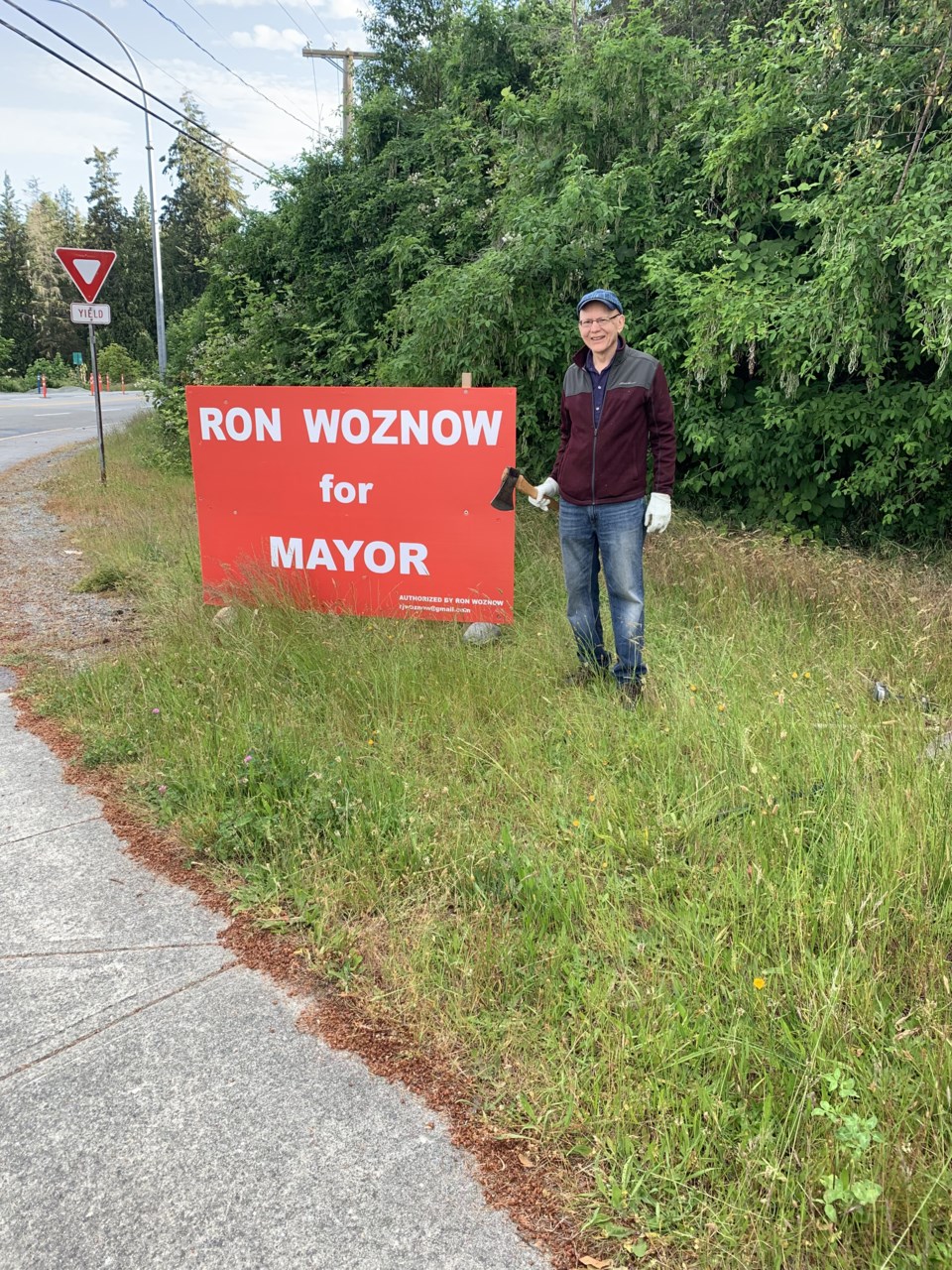From the municipal level, running a city is an ever-growing challenge with 21st century needs, but with a funding model stuck in the 19th century.
Federation of Canadian Municipalities (FCM) estimates that local governments are responsible for 60 per cent of Canada’s infrastructure, but receive only 10 cents of every tax dollar collected.
City of Powell River mayor Ron Woznow has worn many hats in his life, including being an adjunct professor at University of Toronto and University of British Columbia. This is Woznow's first go at municipal politics, and since being elected mayor in 2022, he said the job has been full of complexities.
Current funding model outdated
"The current system [to fund cities and towns] was developed in the 1800s but the world has changed, and the role municipalities play in providing key services has changed," said Woznow. "Essentially, the ability of municipalities to fund [services] hasn't changed. We need all levels [of government], federal, provincial and municipal, to find a way to correct this, because we know these problems aren't going to go away by themselves."
Rising capital and operating costs
Challenges being faced by municipalities in BC and across Canada include rising capital and operating costs, increased growth, housing and homelessness, climate change, increasing public transit needs and aging core infrastructure.
FCM wants Ottawa to convene all orders of government to come together and develop a Municipal Growth Framework (MGF), with the hope that funding for cities and towns will become a more predictable and equitable way to fund local governments. Under the current framework, towns and cities receive money from federal and provincial governments, but the cash transfers are not a consistent, sustainable source of funding, which makes planning for future projects difficult, according to the FCM.
There is a path forward
"What the FCM has done, is succinctly laid out that there is a path forward, but, right now, is there the political appetite [to tackle this issue] at the federal and provincial level?" asked Woznow.
The province is gearing up for an election this October and the federal government is in election mode, although that election isn't until late 2025.
"It's a little hard to get their leadership to focus on something like this right now, but I'm optimistic that probably in the next year, there will be the ability to say, ‘all right, let's tackle this,’" said Woznow. "What's most important is that the municipalities are on the ground, and we understand the unique challenges we face and what would make things work better. If we have a greater share of the resources, then we can put them where they should be."
Woznow believes the increase in annual transfers to municipalities proposed by the FCM makes sense. As part of the FCM's municipal growth framework paper, the annual transfer to municipalities would increase by $2.6 billion.
"We're lucky in that we have very capable staff," said Woznow. "This is a juggling exercise. Our CFO and CEO work with planning and all the managers to decide what the city's priorities are, then we sit down and decide together what we can fund and what [priorities] will have to wait until we get additional monies."
Woznow emphasized that the current system requires a huge amount of time and staff to be writing proposals, but if the city received the money directly, as FCM proposes, then time could be spent on implementation of city projects.
"I have been an adjunct professor for a school of management and economics but none of my jobs have been as complex as the mayor of a municipality," said Woznow. "With the mill shut down, that in itself creates a whole series of challenges. The bottom line is, [being mayor] is more interesting than I had anticipated because of the variation and the complexity of the issues on a day to day basis."
City has a lot of potential
Woznow said he sees a lot of potential for the city and believes its residents, and those who plan to move here, plus the natural landscape and resources, are huge assets that shouldn't be underestimated.
"The key thing to understand is that, relative to all the municipalities in British Columbia, we have two things most do not have," said Woznow. "We have water and we have city-owned land. In addition, we have an incredible resource of parks and recreation opportunities. What's going to happen is there are new businesses that are going to come into Powell River.
“There are so many young people [here] now, and that's reflecting the fact that people of all ages understand what a great place Powell River is to live, and I think we're just going to continue building on that."
Join the Peak’s email list for the top headlines right in your inbox Monday to Friday.




